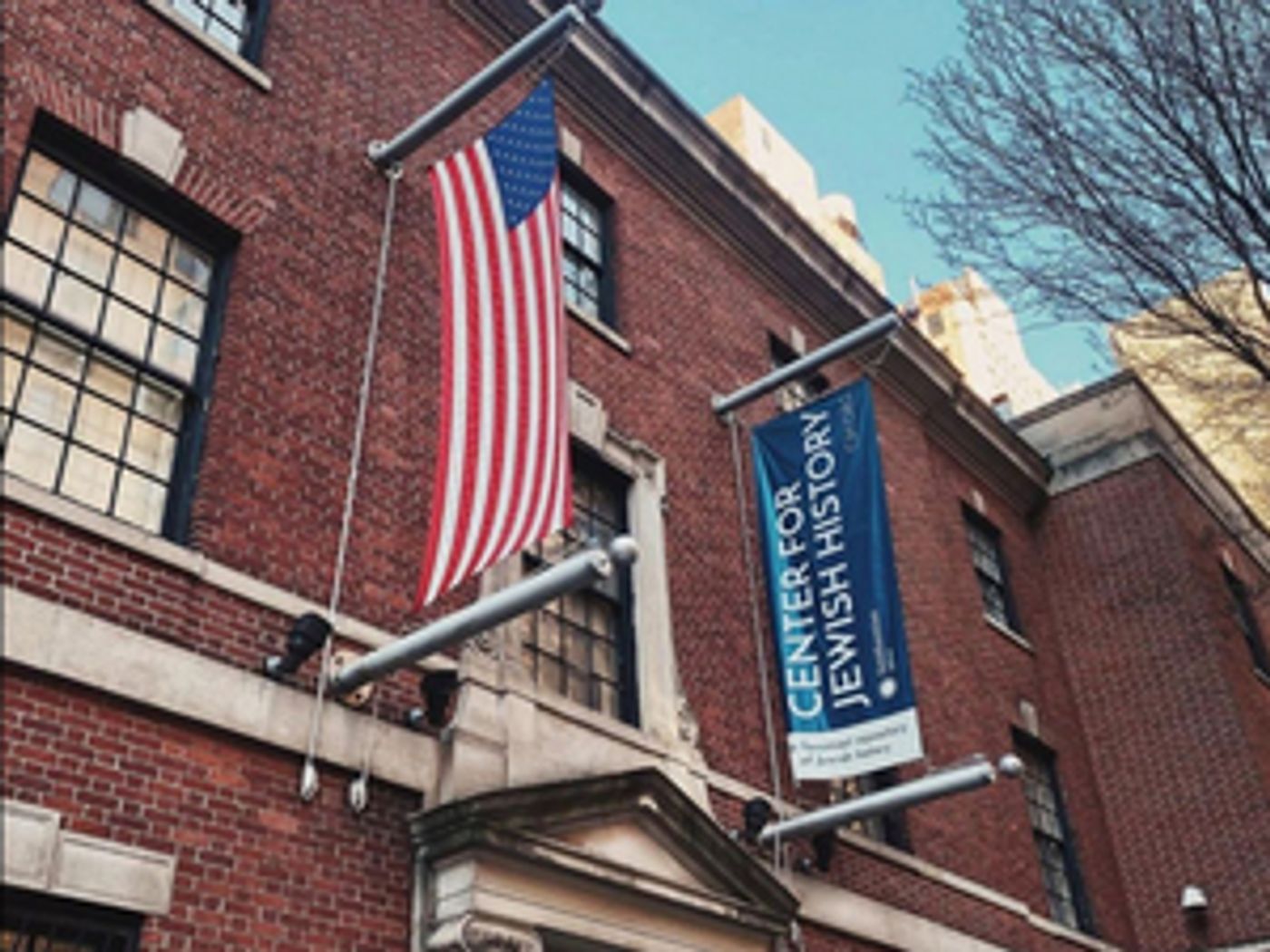
The Center for Jewish History (the Center) has been awarded four significant COVIDa?'19 emergency relief grants totaling more than $400,000 to offer new services addressing the crisis, and to support its mission of preserving and providing access to the largest collection of Jewish history in the world outside of Israel.
The largest grant comes from the National Endowment for the Humanities (NEH) for a project titled Sustaining History, Sustaining Staff: Mission-Critical Services and Crisis-Informed Projects at the Center for Jewish History. The NEH award of $298,500 will allow the Center to restore the full hours and salaries of more than 20 highly skilled humanities staff - librarians, archivists, photographers, and conservators - through the end of 2020. These employees will carry out core services key to the Center's mission during this time, including managing the online public access catalog (search.cjh.org) and digital collections, arranging and describing new archival materials, ensuring proper preservation of items, digitizing documents, improving digital discovery, and answering researcher questions.
The COVID-19 crisis has had a significant impact on the Center, as it has on cultural institutions generally and the economy as a whole. "This funding permits the Center to continue to pursue the key parts of our mission and serve our members and the community even though our physical doors remain closed," said
Bernard Michael, President and CEO of the Center.
The NEH funding will also allow the Center to implement a series of special projects that demonstrate how the humanities can be used to respond to COVID-19. "Our current moment is rife with issues that the humanities must address, among them hatred, prejudice, and scapegoating," said
Bernard Michael. "The tools for understanding and fighting these are at the Center for Jewish History. We preserve and provide access to materials testifying to over 5,000 years of resilience of a minority population. The stakes of our current moment are high, and contributions that the Center can make to the humanities are significant, particularly at this time."
The first special project will digitally preserve and share with the public recordings of at least 50 past programs held at the Center focusing on those that speak to hate, discrimination, xenophobia, and related topics.
Two new digital exhibits will also be created. The first is a collaboration with the Museum of Chinese in America (MOCA) titled, Emile Bocian: An Unlikely Photojournalist in Chinatown. The exhibition will showcase images of a vanishing 1970s-80s New York captured by a son of Eastern European Jewish immigrants turned Chinatown resident and prolific photographer for a Chinese-language daily newspaper. The second digital exhibit, created with the American Jewish Historical Society, is titled When the Golden Door Closed, They Carried the Torch. It will highlight how American Jews resisted xenophobic policies during World War II.
A series of other special projects seek to connect with the Center's significant audience of senior citizens, a population at high risk for COVID-19, more likely to live in isolation, and expected to remain away from public spaces like the Center longer than others even after reopening. Services include conducting remote workshops on family history research, creating videos on high-interest topics (genealogy, home archives), a virtual book club, printing and shipping exhibits as posters for safer viewing at senior centers, and outreach to senior groups with this content.
Genealogy workshops for seniors are already underway with great success, as highlighted in a May 2020 segment on the NY1 television channel.
The NEH CARES grant program was established through the Coronavirus Aid, Relief, and Economic Security (CARES) Act passed by Congress in March, which allocated $75 million in additional funds to the NEH to preserve humanities jobs. The NEH CARES grant program was highly competitive, with more than 2,300 applicants requesting more than $370 million. Only 317 (about 14%) of the applications were successful, and the Center received one of the highest amounts awarded.
Further relief funding recently awarded to the Center demonstrates the wide recognition of the impact of its work at this time. The New York Community Trust's NYC COVID-19 Response & Impact Fund awarded the Center $50,000 towards the salaries of its librarians and archivists and special projects they are currently carrying out. The Leon Levy Foundation, a long-time supporter of the Center, awarded $50,000 in emergency relief to support general operating. Humanities New York awarded the Center $10,000 (out of a maximum possible grant of $15,000) in further CARES Act funding distributed at the state level to support the Center's humanities work. Together, these four grants total $408,500 in relief funds that will support the Center's core work for the remainder of 2020 and into 2021.
The impact of this relief funding goes beyond the Center alone. The staff supported by the grants preserve and provide access to vast collections of the Center's five in-house partner organizations: the American Jewish Historical Society, the American Sephardi Federation, the Leo Baeck Institute, Yeshiva University Museum, and the YIVO Institute for Jewish Research. Center staff run the reading room through which all partner collections are accessed and provide archive, digitization, and conservation services. Partner organizations rely on the Center to manage the digital systems for the shared online catalog and digital collections now numbering over 6.1 million items.


